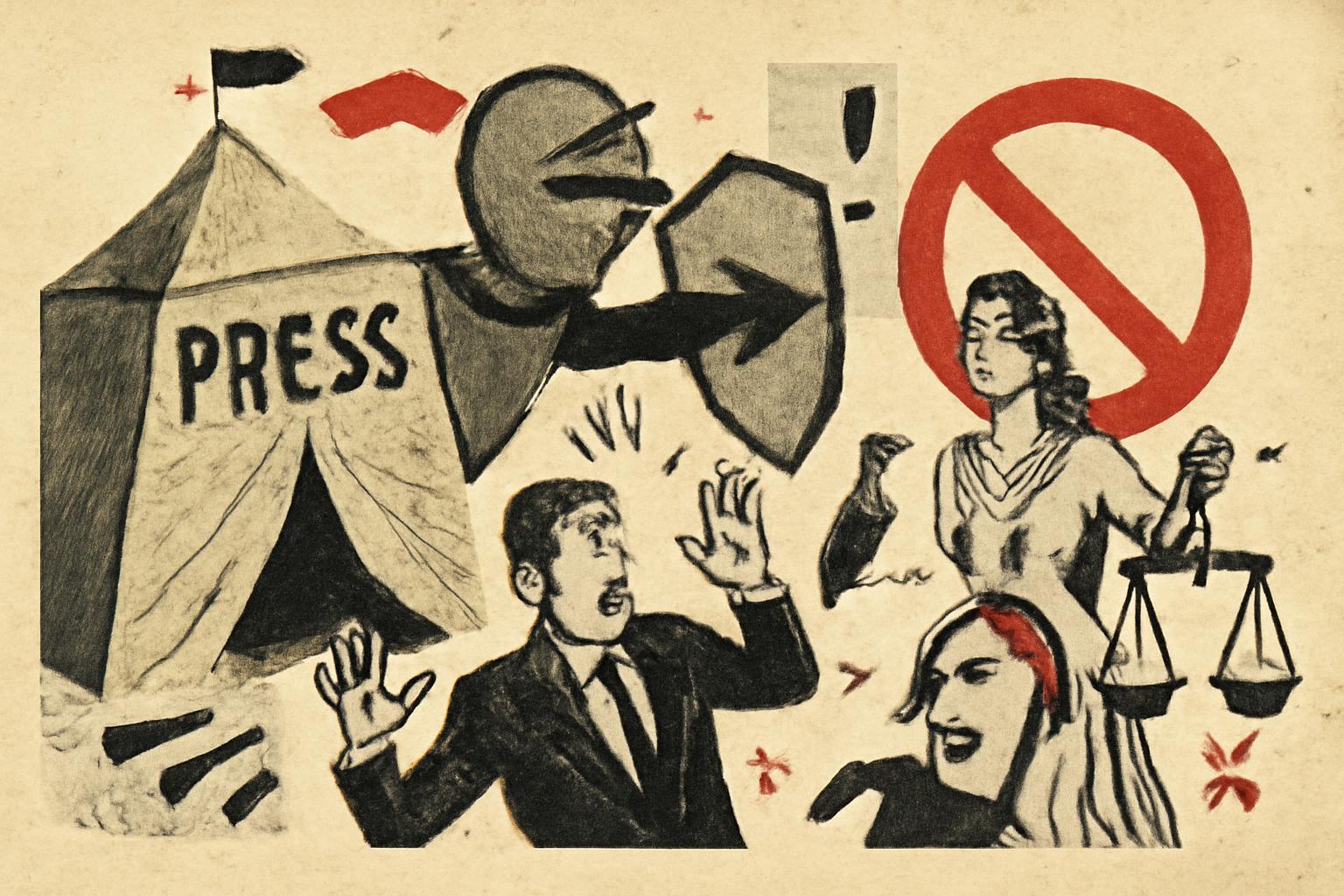A strike that destroys a press tent and cuts down journalists exposes the core libertarian claim: the state claims to act in defense of rights, yet it treats human life as a tool in its political calculus. If any group is dangerous, the reflexive answer of state power is to expand force, not to protect the rights of those who observe and report. The result is not a disciplined application of justice but a brutal assertion of supremacy, cloaked in humanitarian rhetoric.
From a Hayekian angle, the outrage reveals a fundamental knowledge problem: centralized authorities cannot possibly know when a target is legitimate or what the secondary consequences of an attack will be. The rule of law, to be credible, must restrain the state’s use of violence and subject it to predictable, non-arbitrary standards. When a tent serving as a news gathering site is struck, the rule of law is breached if journalists are treated as legitimate collateral damage or if the justification rests on opaque intelligence and “necessity.” The free flow of information—civil society’s check on power—depends on protecting reporters from aggressive state actions, not legitimizing them.
From Nozick’s perspective, even the appearance of protecting rights is hollow if the state itself violates rights in the name of security. The minimal state exists to enforce rights against initiators of force, not to wage wars abroad or to sanction actions that kill noncombatants or noncombatants’ property. If a state claims to need to defend civilians but prunes away the rights of journalists who document the consequences, it reveals its true function: coercive control, not rightful defense. War-making becomes a license to expand coercive power, and accountability gets hollowed out by appeals to necessity and collective welfare.
A Randian lens sees journalists as rational individuals whose rights to life, liberty, and the pursuit of truth must be protected. Any justification that treats a journalist’s tent as legitimate target under the banner of military necessity is a moral abdication. The moral ideal is a society where the mind is free to observe, think, and communicate without being crushed by the violence of others, including the state. “Different individuals have different rights,” and no collective project can override a single innocent life without violating the fundamental moral code. The invocation of humanitarian law rings hollow if the law is weaponized to shield state aggression rather than to deter it.
What should follow, then, is not more excuses or appeals to international opinion, but a rebalance of power toward protecting individual rights. A libertarian response would demand: limit foreign adventurism and the allocation of coercive resources to demonstrably protecting rights at home and abroad; insist on transparent, enforceable standards that hold aggressors accountable while avoiding the expansion of state prerogatives that justify killing noncombatants. Where there is wrongdoing, nonviolent or just-retribution mechanisms—private arbitration, restitution, and market-based security arrangements—should displace coercive, unilateral state action.
In the end, this is a stark reminder that the true guardianship of civilians and journalists lies not in grand pronouncements by states but in the restraint, predictability, and respect for individual rights that a rightly limited order—even a Hayekian one—seeks to preserve. The instinctive demand should be to curb the power that kills in the name of protection, and to reinforce the institutions that allow truth to be spoken and verified without fear of state-sanctioned violence.
